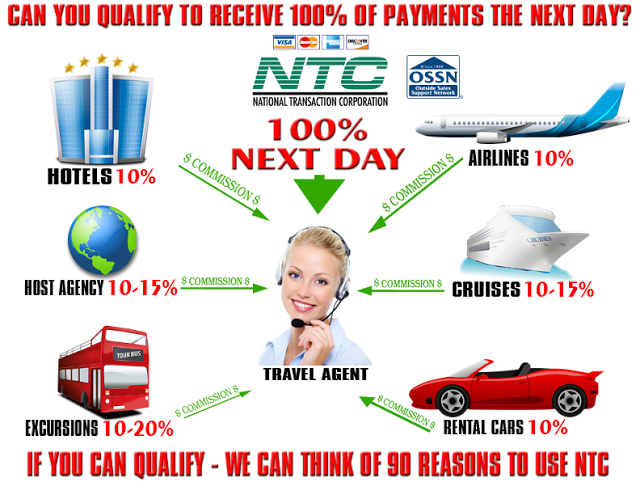
December 18th, 2024 by Elma Jane
What makes your travel merchant account high risk?
Travel environments are unique and transactions are usually keyed in. There’s almost always a delayed delivery period, and large ticket transactions.
One card holder may be paying for multiple tickets and they tend to be seasonal; with peak season months generating an unusual spike in their “average” monthly volume and chargebacks, pose a potential threat by travelers who are unable to complete their trip.
These factors can cause for either a reserve or account termination. Therefore travel merchant accounts are considered high risk.
Most merchants do not realize that merchant processors carry a financial risk on merchant accounts, and normally fund merchants prior to receiving payment from the client’s bank. Therefore, a merchant account is an unsecured loan.
The merchant runs a transaction and at the end of the day they settle their batch. The merchant will receive the funds for that batch in their bank account within 2 business days, even though the travel arrangements the client paid for do not take place right away.
Here at National Transaction Corp, we specialize in understanding what makes your transactions as a travel agent unique and how they affect your merchant account.
Educating the merchant and ensuring they have a good understanding of what makes travel merchant account high risk, is one of our specialties.
Call NTC to speak with a Travel Merchant Account Specialist today!
Dial 888-996-2273
Posted in Best Practices for Merchants, Travel Agency Agents Tagged with: bank, card, chargebacks, financial, loan, merchant, payment, processors, transactions, travel, travel agent, Travel Merchant

September 20th, 2024 by Elma Jane
Merchant Account Risks for Travel Agencies
The travel industry, with its high-value transactions and international clientele, faces unique challenges when it comes to credit card processing. While accepting plastic is crucial for smooth booking and customer convenience, travel agencies must be aware of the inherent risks and implement strategies to mitigate them. Here’s a breakdown of the key credit card processing risks and how to minimize them:
1. Chargebacks:
- The Problem: Travel plans change, flights get delayed, and unforeseen circumstances arise. This can lead to a higher rate of chargebacks, where customers dispute charges with their credit card company. Chargebacks can be costly, involving fees, lost revenue, and potential damage to your merchant account reputation.
- Mitigation:
- Clear Cancellation Policies: Crystal-clear terms and conditions regarding cancellations, refunds, and travel changes are essential. Ensure these are easily accessible during booking.
- Thorough Documentation: Maintain detailed records of all transactions, customer communications, and travel itineraries. This provides evidence in case of a dispute.
- Proactive Communication: Keep customers informed about any changes to their travel plans and address concerns promptly.
- Secure Payment Processing: Utilize 3D Secure (like Verified by Visa or Mastercard SecureCode) for added authentication and fraud prevention.
2. Fraud:
- The Problem: The travel industry is an attractive target for fraudsters due to high transaction values and the potential for anonymity. Fraudulent activities can include using stolen credit card details, booking fictitious trips, or exploiting vulnerabilities in online booking systems.
- Mitigation:
- Address Verification System (AVS): Verify the billing address provided by the customer against the address on file with the credit card company.
- Card Security Code (CVV): Always require the CVV code for card-not-present transactions.
- Fraud Detection Tools: Implement fraud screening tools that analyze transactions for suspicious patterns and flag potentially fraudulent activity.
- PCI DSS Compliance: Adhere to the Payment Card Industry Data Security Standard (PCI DSS) to ensure secure handling of sensitive cardholder data.
3. Currency Fluctuations:
- The Problem: International travel often involves transactions in multiple currencies. Fluctuating exchange rates can impact your profit margins and create uncertainty in pricing.
- Mitigation:
- Dynamic Currency Conversion: Offer customers the option to pay in their home currency, providing transparency and potentially reducing chargebacks related to exchange rate discrepancies.
- Hedging Strategies: Explore financial instruments to mitigate currency risk, such as forward contracts or currency options.
4. High Processing Fees:
- The Problem: Travel agencies often face higher processing fees due to the perceived risk associated with the industry.
- Mitigation:
- Negotiate with Processors: Shop around and compare rates from different credit card processors. Don’t hesitate to negotiate for better terms, especially if you have a high volume of transactions.
- Consider Interchange-Plus Pricing: Opt for transparent pricing models like interchange-plus, which separates the interchange fee (charged by card networks) from the processor’s markup.
5. Technological Challenges:
- The Problem: Keeping up with evolving payment technologies and security standards can be challenging. Outdated systems can increase your vulnerability to fraud and data breaches.
- Mitigation:
- Invest in Secure Technology: Use a robust and secure online booking system that integrates with reputable payment gateways.
- Regular System Updates: Ensure your software and security protocols are regularly updated to address emerging threats.
- Partner with Reliable Providers: Choose payment processors and technology vendors with a strong track record of security and reliability.
By understanding and proactively addressing these credit card processing risks, travel agencies can protect their business, enhance customer trust, and navigate the exciting world of travel with greater financial security.
Posted in Best Practices for Merchants, Travel Agency Agents Tagged with: card, card-not-present, cardholder, chargeback, credit card, customer, fraud, high-risk merchants, merchant account, merchants, payment, processors, risk, transaction, travel, travel agencies, travel agency, travel agents
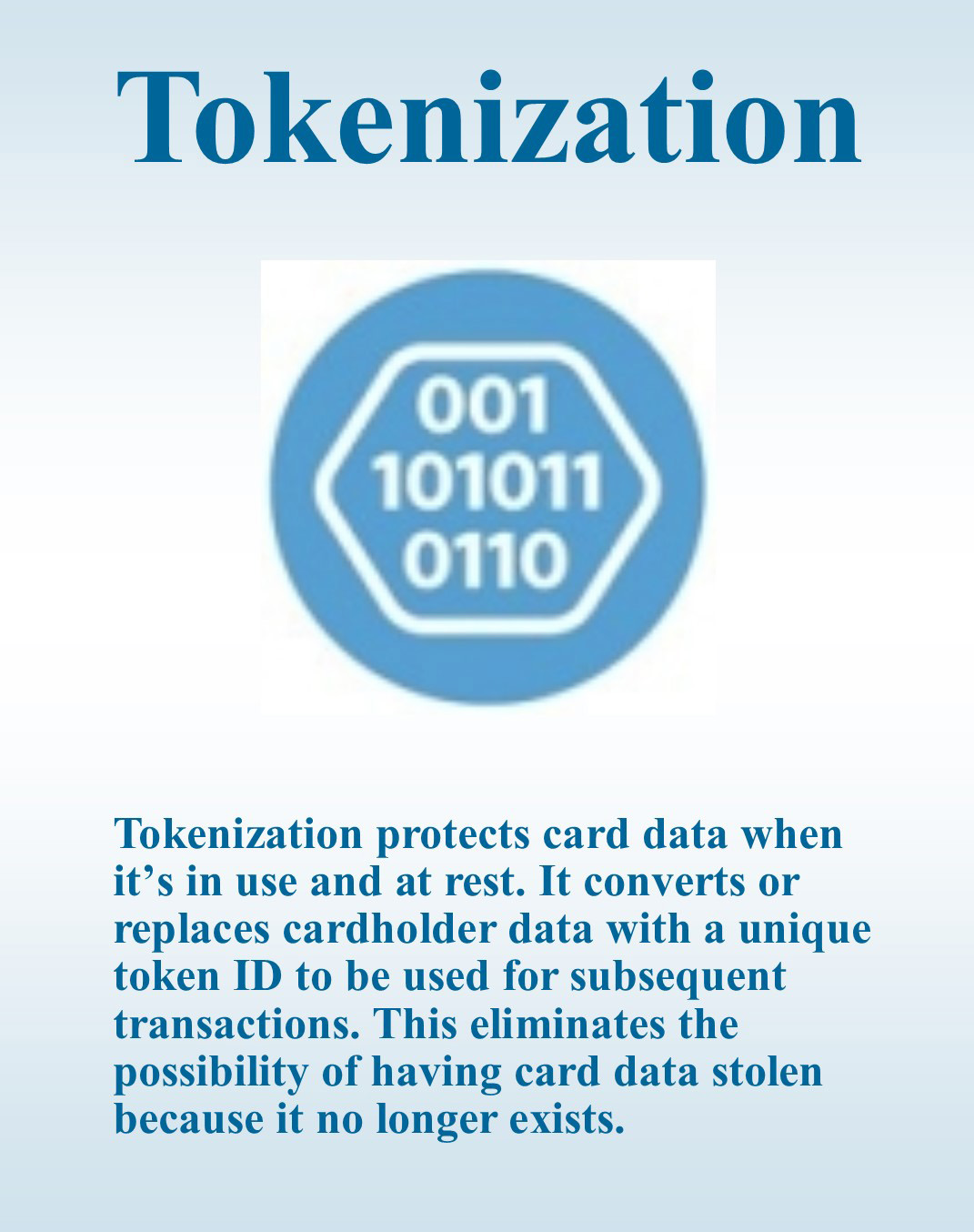
May 5th, 2024 by Elma Jane
Tokenization is a powerful security feature that allows a merchant to support all of their existing business processes that require card data without the risk of holding card data and without any security implications, because tokens are useless to criminals, they can be saved by the merchant as they do not represent any threat.
The liability and costs associated with PCI compliance is substantially reduced and the risk of storing sensitive data is eliminated.
Tokenization applies to credit card and gift card transactions.
Imagine a world where you could accept credit card payments without actually storing any sensitive cardholder data. No more worrying about data breaches, PCI compliance headaches, or the crippling costs of a security breach. That’s the power of tokenization.
Here’s how it works:
Instead of storing sensitive credit card information on your systems, each card number is replaced with a unique, randomly generated “token.” This token is useless to hackers, but it can be used to process payments securely on the merchant account that created the token.
Think of it like a valet ticket:
You hand over your car (the sensitive data) to the valet (the tokenization provider), who gives you a unique ticket (the token). The valet keeps your car safe, and you can use the ticket to retrieve it when needed.
The benefits are immense:
- Ironclad Security: Reduce your PCI DSS scope and minimize the risk of costly data breaches. With tokenization, even if your system is compromised, the actual card data remains safe.
- Effortless Compliance: Simplify PCI compliance and avoid hefty fines. Tokenization helps you meet the stringent security requirements for handling sensitive cardholder data.
- Recurring Billing Made Easy: Securely store tokens for recurring billing or future transactions. This allows you to charge customers later without having to store their sensitive information.
- Improved Customer Trust: Demonstrate your commitment to data security and build customer trust. Knowing their information is protected encourages repeat business and loyalty.
- Streamlined Checkout: Offer a frictionless checkout experience with saved payment information. Tokenization enables faster and more convenient payments for your customers.
Tokenization is not just a security measure, it’s a strategic advantage:
- Reduce costs: Minimize the expenses associated with data breaches and PCI compliance audits.
- Boost efficiency: Streamline your payment processes and reduce administrative overhead.
- Enhance your reputation: Position your business as a leader in data security and customer trust.
In conclusion:
Tokenization is a game-changer for businesses that accept credit cards. It offers unparalleled security, simplifies compliance, and unlocks new opportunities for growth. Embrace the future of secure payments with tokenization and watch your business thrive.
For Electronic Payments with Tokenization call now 888-996-2273 or click here NationalTransaction.Com
Posted in Best Practices for Merchants, Credit Card Security, Electronic Payments, Payment Card Industry PCI Security Tagged with: card, credit card, data, electronic payments, merchant, PCI, Security, token, tokenization, transaction
October 7th, 2018 by Admin

National Transaction is celebrating 21 years in the business today. Founded in 1997 National Transaction (NTC) purpose is to serve businesses of all sizes with their cash flow with the highest levels of professionalism and care.
This 21 year anniversary would not be possible without our leader, Mark Fravel and we want to take you back to his why and the reason we are still here today.
The beginnings:
Mark, a single parent of 3 beautiful daughters, wanted to provide for their kids without being on the road all the time. And so, with this passion in mind, a desire to serve and commitment to his family, National Transaction was born.
NTC began like many business and passions, with no customers and only one employee but quickly grew and Mark knew that leading with confidence and excellence will drive this business somewhere.
The Present:
Now, NTC often ranks in the top 10 of many data and technology awards. This Excellence has also earned us an A+ rating in the Better Business Bureau.
This 21 years would not be possible without our desire to help a business grow and give them the right tools for their transactions. We love being on the phone with our customers, we love getting to know them and how we can provide our best service.

The Future
Mark started this with a desire to be a family man, and so, this family feeling has stayed with our company. We treat our team like family, and we are excited about what our future holds the next 21 years.
Thank you for celebrating 21 years of customer service, passion, connection and above all, quality. We will continue to provide you with the best service we know how to give, and we will uphold our promise and mission to make digital transactions reliable and simple to the merchant and familiar to the consumer, reducing the complexity and expense to both.
Thank you for being part of the National Transaction Corporation‘s family.
Posted in nationaltransaction.com Tagged with: Anniversary, ASTA, Better Business Bureau, business, card, consumers, credit card, credit cards, credit-card, customer, customers, data, e-commerce, entrepreneur, entrepreneurship, MasterCard, merchant, merchant account, merchants, Mobile Payments, National Transaction, payments, point of sale, Security, transaction, visa
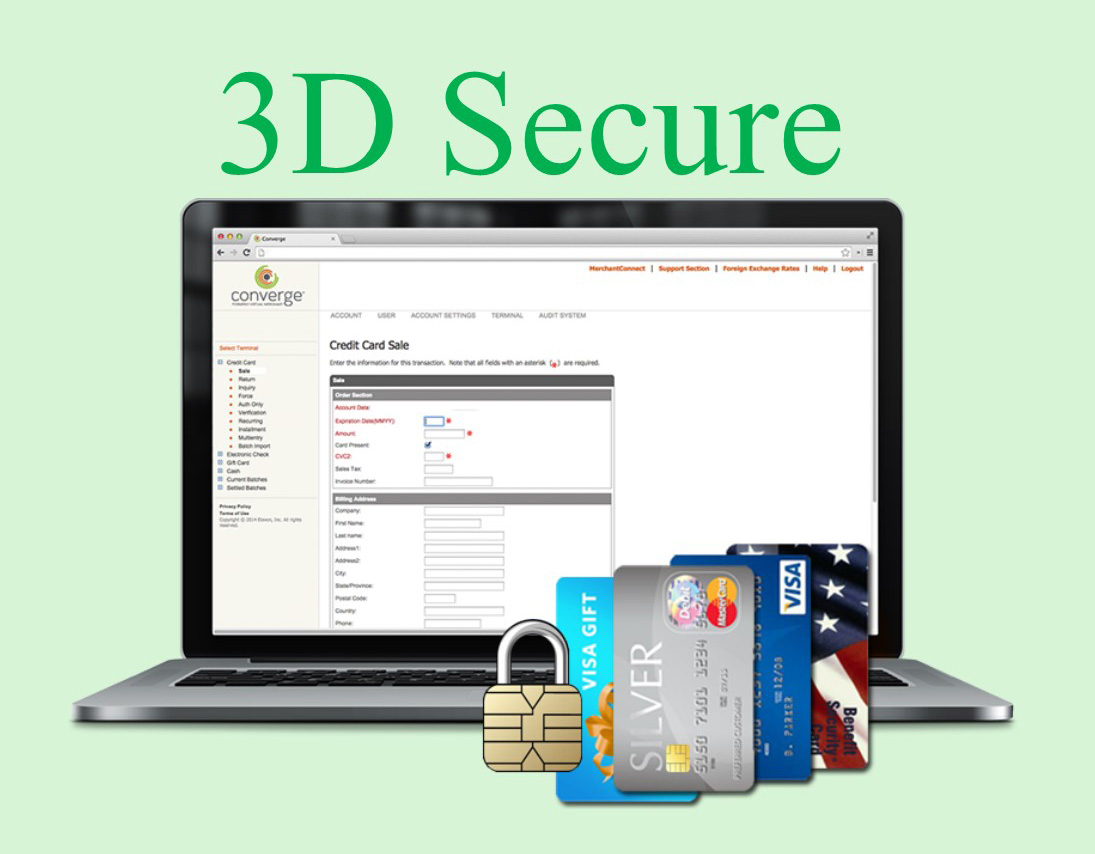
May 11th, 2017 by Elma Jane
Three Domain Secure (3-D Secure)
Visa is announcing a global plan to support 3-D Secure 2.0 to help protect e-commerce transactions.
3-D Secure (3DS) – stands for Three-Domain Secure. A messaging protocol to enable consumers to authenticate themselves with their card issuer when making card-not-present (CNP) e-commerce purchases. 3DS is an additional security layer that will help prevent unauthorized CNP transactions and protects the merchant from CNP exposure to fraud.
The three domains consist of:
The merchant/acquirer domain
Issuer domain
the interoperability domain (payment systems)
The purpose of the 3DS protocol within the payments community is to facilitate the exchange of data between the merchant, cardholder and card issuer. The objective is to benefit each of these parties by providing the ability to authenticate cardholders during a CNP e-commerce purchase, reducing fraud.
Visa currently offers its 3-D Secure service through the Verified by Visa program, which supports the existing 3-D Secure 1.0 specifications for consumer authentication.
Visa anticipates that early adoption of 3-D Secure 2.0 will begin in the second half of 2017.
Merchants that authenticate transactions using 3-D Secure are generally protected from issuer card-not-present fraud-related chargeback claims,1 and this rule will extend to merchant-attempted 3-D Secure 2.0 transactions after 12 April 2019, the global program activation date.
For Electronic Payment Set Up go to NationalTransaction.Com or call now 888-996-2273!
Posted in Best Practices for Merchants Tagged with: card, card-not-present, cnp, data, e-commerce, electronic payment, merchant, payment, Security, transactions
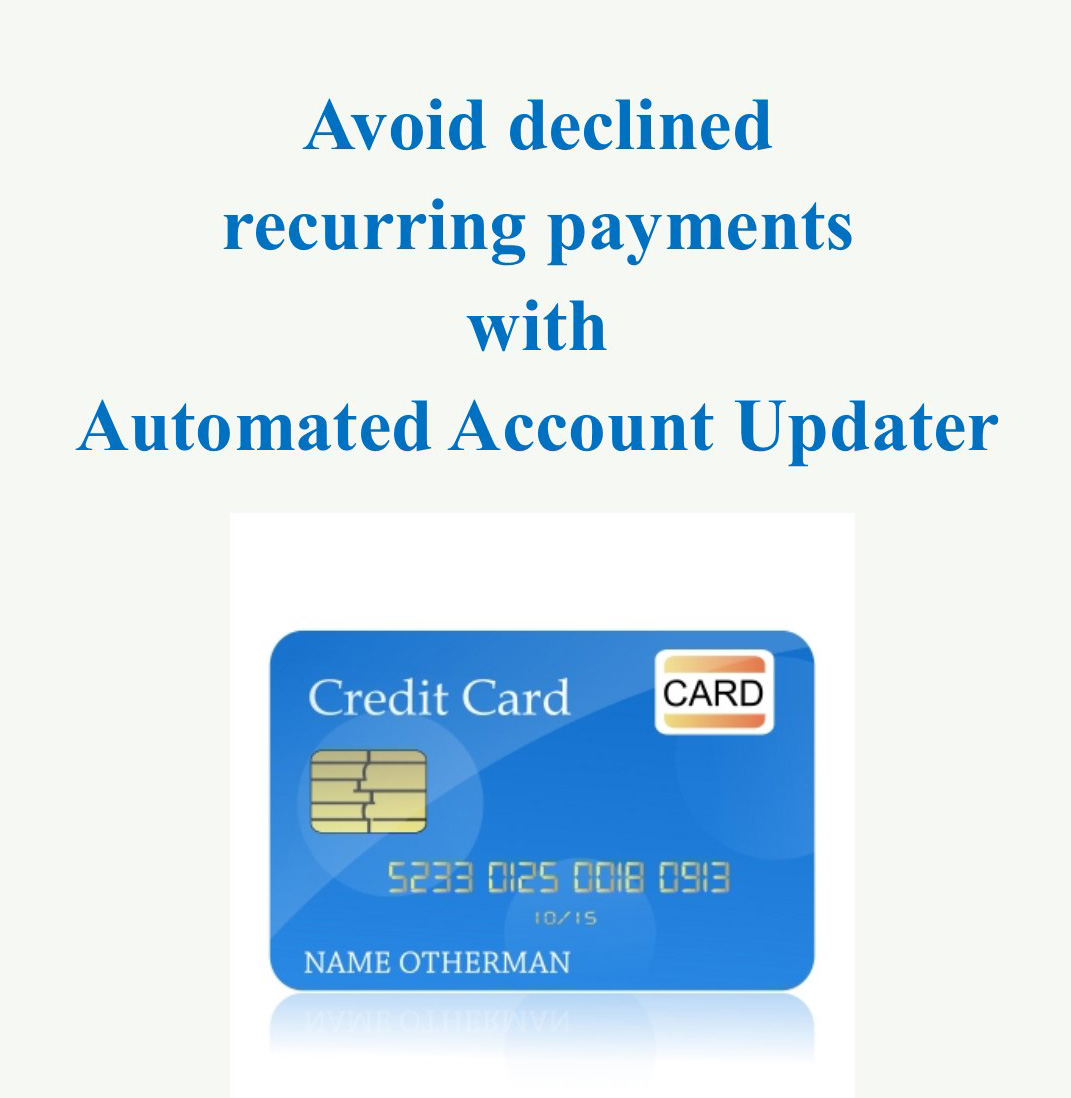
May 2nd, 2017 by Elma Jane
Automated Account Updater
Avoid declined recurring payments with automated Account Updater.
Target Market: Merchants that accept regular recurring monthly donations like church, or recurring monthly tuition payments for schools or any regular customer you need to invoice.
Account updater advantage – Increased Sales and Retention, Reduce Customer Costs and Reduced Operating and Processing Costs.
Convenient and Transparent Account Updates
Account updater – is a service to automatically update the cards on file. These tools are used to ensure the success of recurring payments. This makes the account update process convenient with little effort by the cardholder to maintain a seamless and transparent update of card account information.
For Electronic Payments Set up and account Updater call now 888-996-2273
Or click here NationalTransaction.Com
Posted in Best Practices for Merchants Tagged with: card, electronic payments, merchants, payments
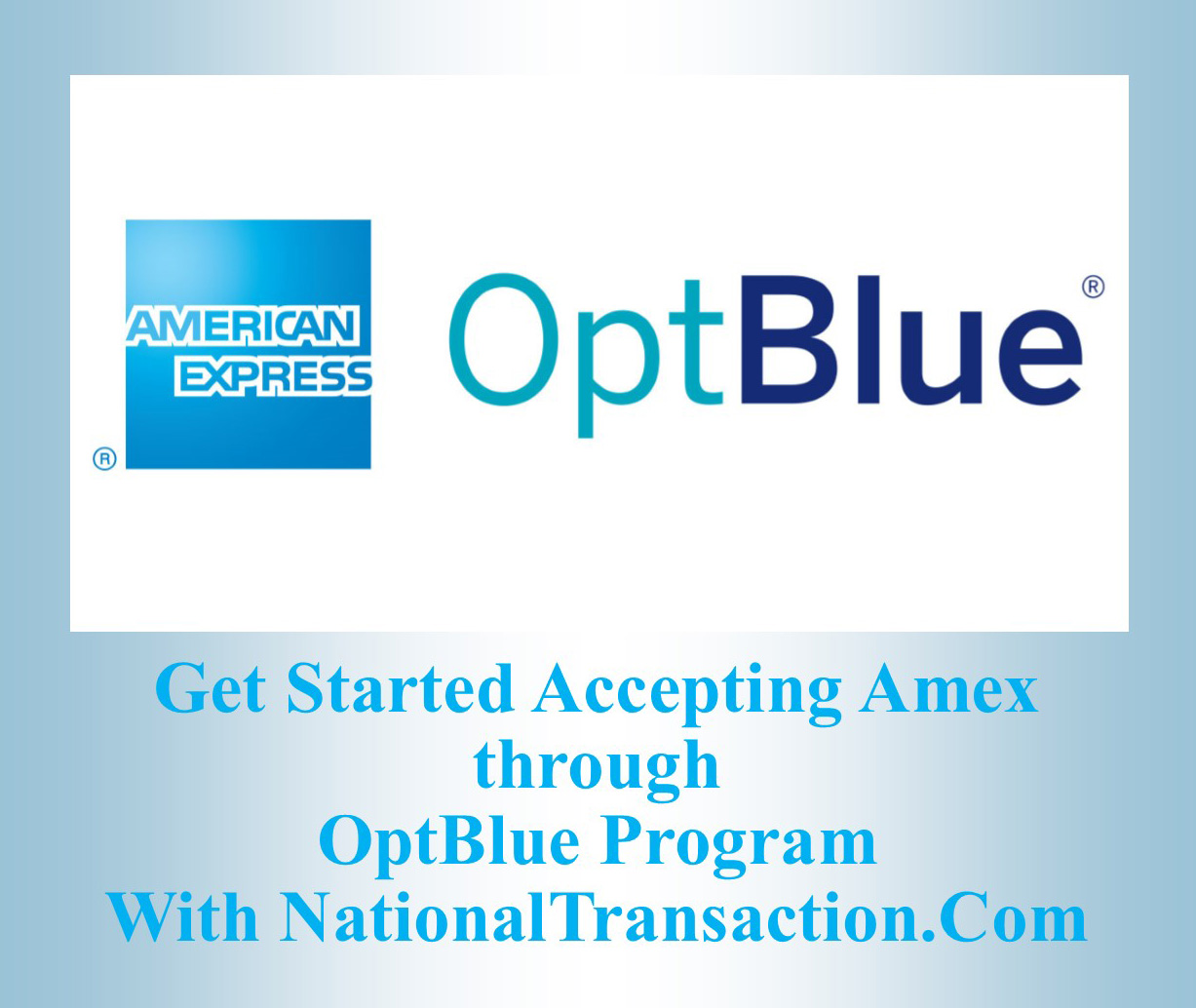
April 18th, 2017 by Elma Jane
NTC Amex OptBlue Program rate are a lot more competitive, with NTC Amex OptBlue you can find a rate that’s right for your business and a faster, easier way to accept the card.
Amex OptBlue Program allows smaller businesses to accept American Express credit cards without paying excessively higher rates. Those who sign up for this program can automatically bundle American Express along with the other major card brands that they already accepting.
Before Optblue, you had one rate option for American Express Card acceptance. Now, because your Merchant Service Provider sets the rate, you could find a deal that works for you.
In some cases, Amex OptBlue is lower than Visa and MasterCard.
If you’re an existing merchant adding Amex Optblue is easy with NTC. You’ll get paid at the same time as your other card brands. One fast deposit!
All the credit cards you accept in one simple statement.
One Customer Service Contact. We can answer questions for every card you take with us.
Give us a call now 888-996-2273 or fill out the form NationalTransaction.Com and we’ll help you get going with Amex OptBlue.
Posted in Best Practices for Merchants Tagged with: amex, card, MasterCard, merchant, payment processing, service provider, visa
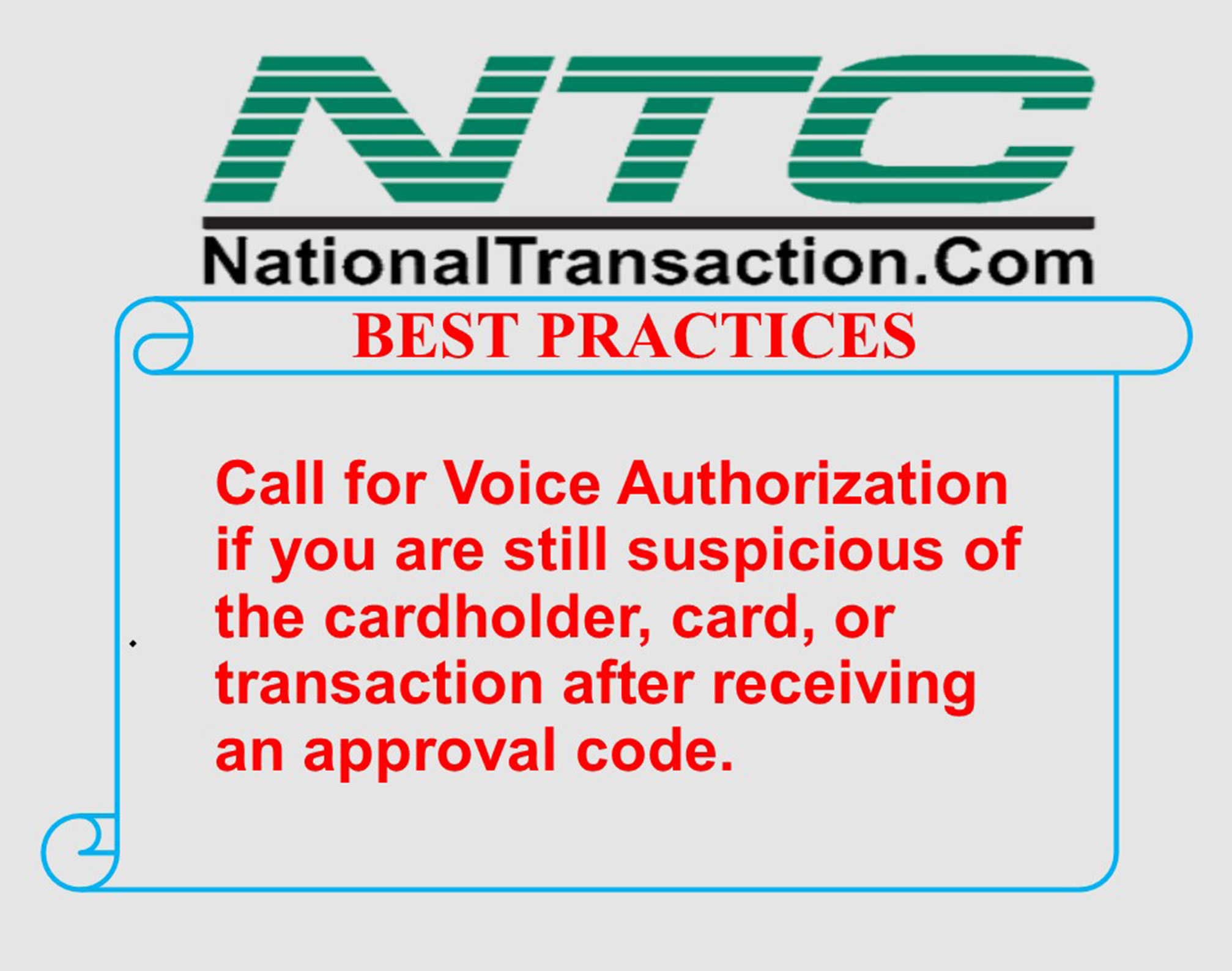
February 22nd, 2017 by Elma Jane
BEST PRACTICES
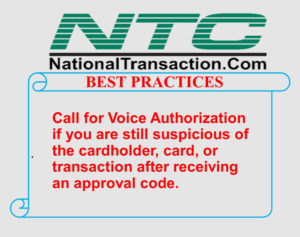
Posted in Best Practices for Merchants Tagged with: card, cardholder, voice authorization
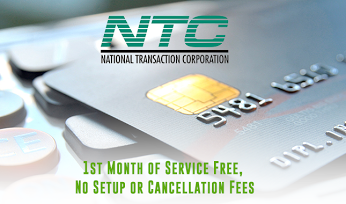
January 23rd, 2017 by Elma Jane
What Makes Up The Rate That You’re Paying?
Most rates are made up of three parts:
Interchange – Goes to the bank that issued the card, and is typically made up of a flat rate plus a percentage of the sale.
Assessments – Go to card network like Visa, MasterCard, Amex, Discover etc.
Processor fees – Fees involved with providing the service, risk assessments, the type of transaction, and the size of the transaction. This portion includes the margin between the total rate and the two previous parts, along with any incidental fees, like chargeback or statement fees.
There are a lot more intricacies of what makes up a credit card rate, but this information gets you off to a good start. If you’re interested in learning more about electronic payments, check our website www.nationaltransaction.com or call now 888-996-2273 and talk to our Payment Consultant.
Posted in Best Practices for Merchants Tagged with: bank, card, card network, chargeback, credit card, merchant, payment, processor, transaction

December 22nd, 2016 by Elma Jane
What is a Merchant Account?
If you want to remain competitive virtually, every business needs access to a merchant account to accept card payments from their customers. “Merchant” is another word for a seller or business owner. Merchant accounts are not depository accounts like checking and savings accounts; they are considered a line of credit. This allows a merchant to receive funding for the credit transaction. Therefore, when a customer pays with a credit card; a bank is extending credit to that customer and also making the payment on his/her behalf. As for payment providers or processors; they pay merchants before the banks collect from customers and are therefore extending credit to the merchant, that’s why Merchant account is considered as a LOAN.
Merchant account helps facilitate the complex interactions that need to occur between your business and your customer, the credit card networks (Amex, Discover, MasterCard, Visa) and your payment provider every time you receive a card payment. It helps to ensure that you receive funding as quickly as possible, that the banks are protected from losses, and that buyers are protected from scams. Everyone is held accountable based on the rules of the credit card processing agreement with a merchant account.
There’s cost associated in taking credit cards, but it’s much easier and more secure to open a merchant account than it is to keep a book of credit accounts for all of your customers!
Posted in Best Practices for Merchants, Travel Agency Agents Tagged with: amex, card, credit, customers, Discover, loan, MasterCard, merchant account, payment provider, payments, transaction, visa










